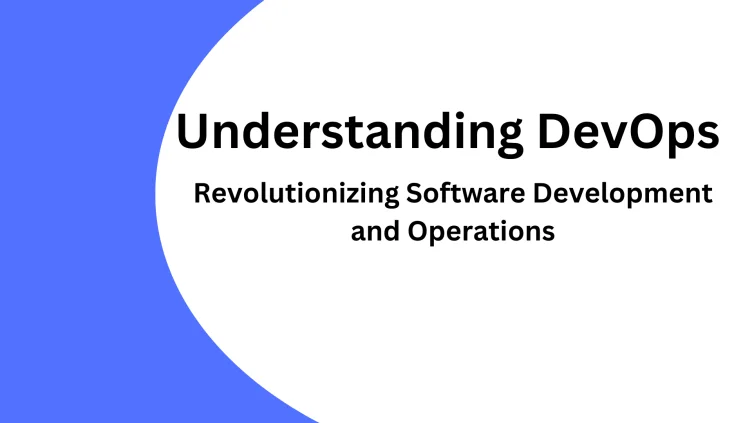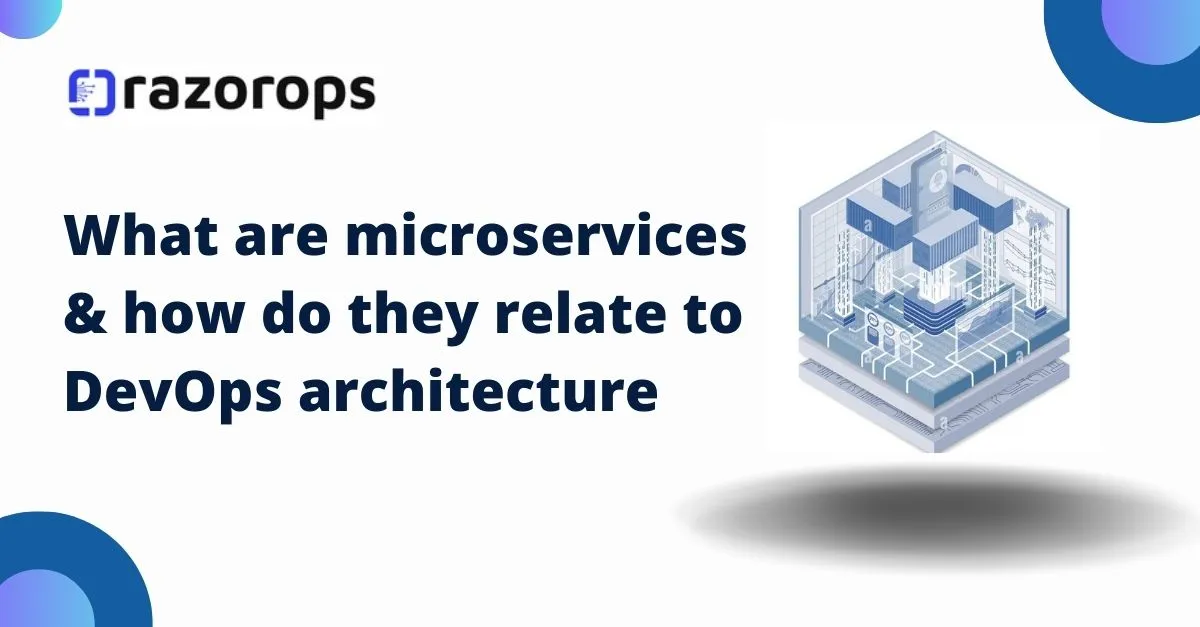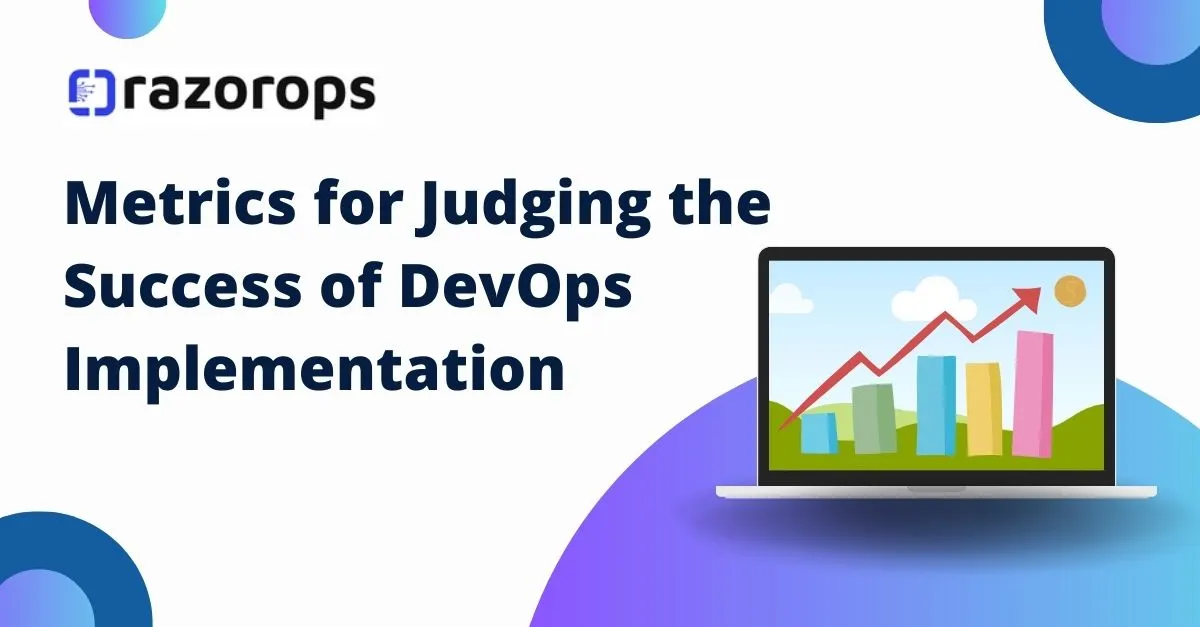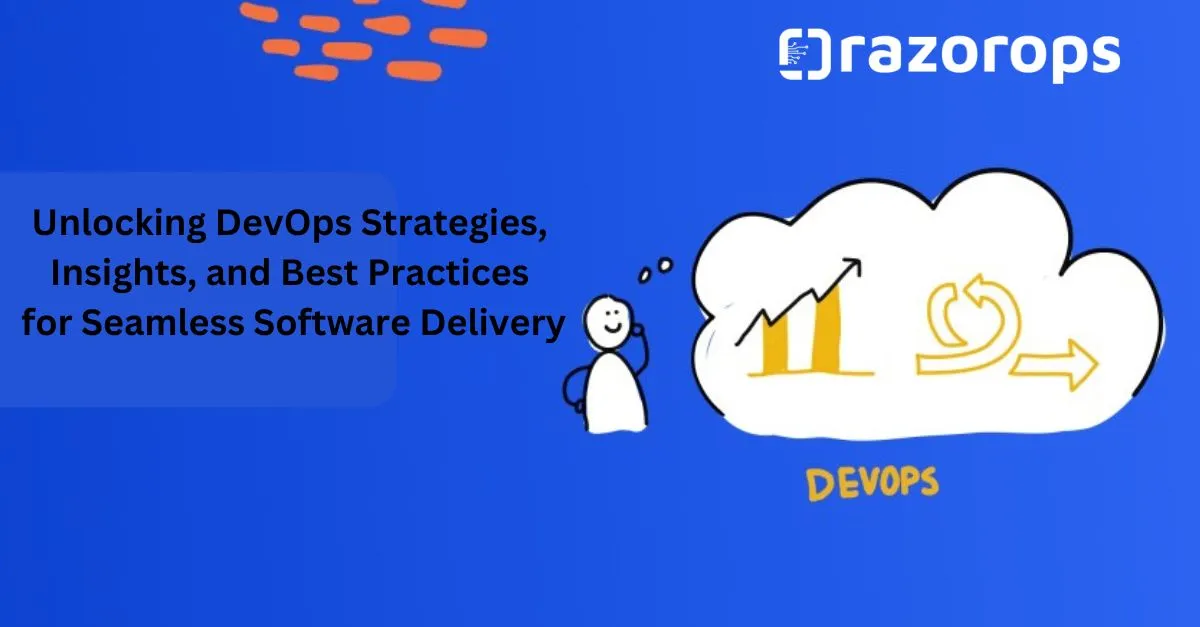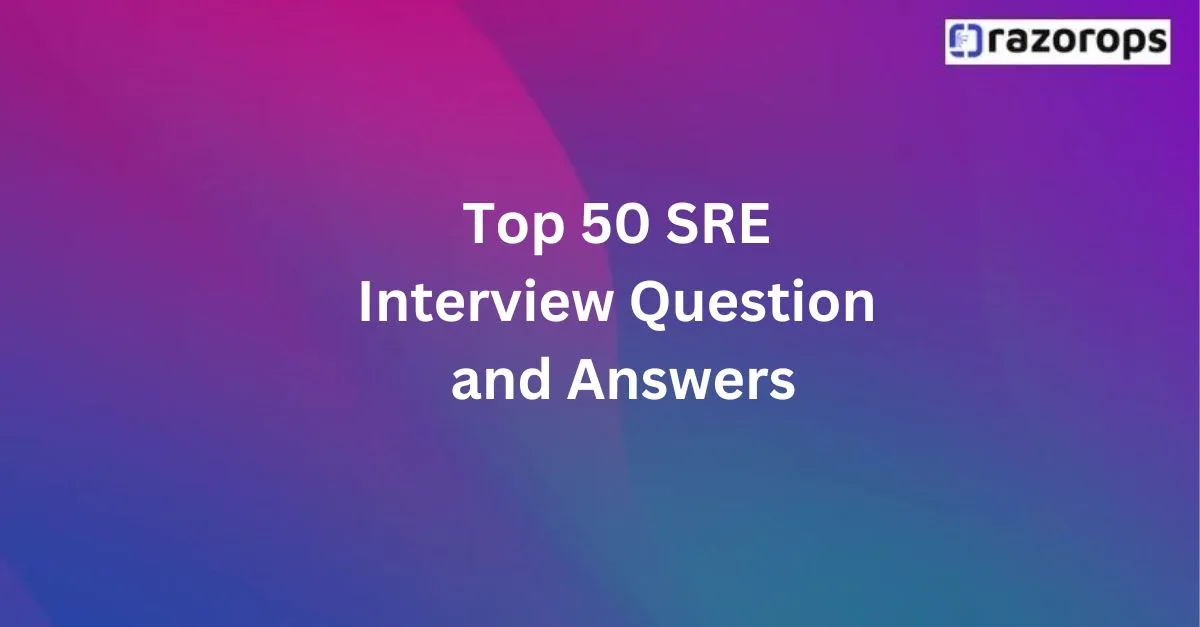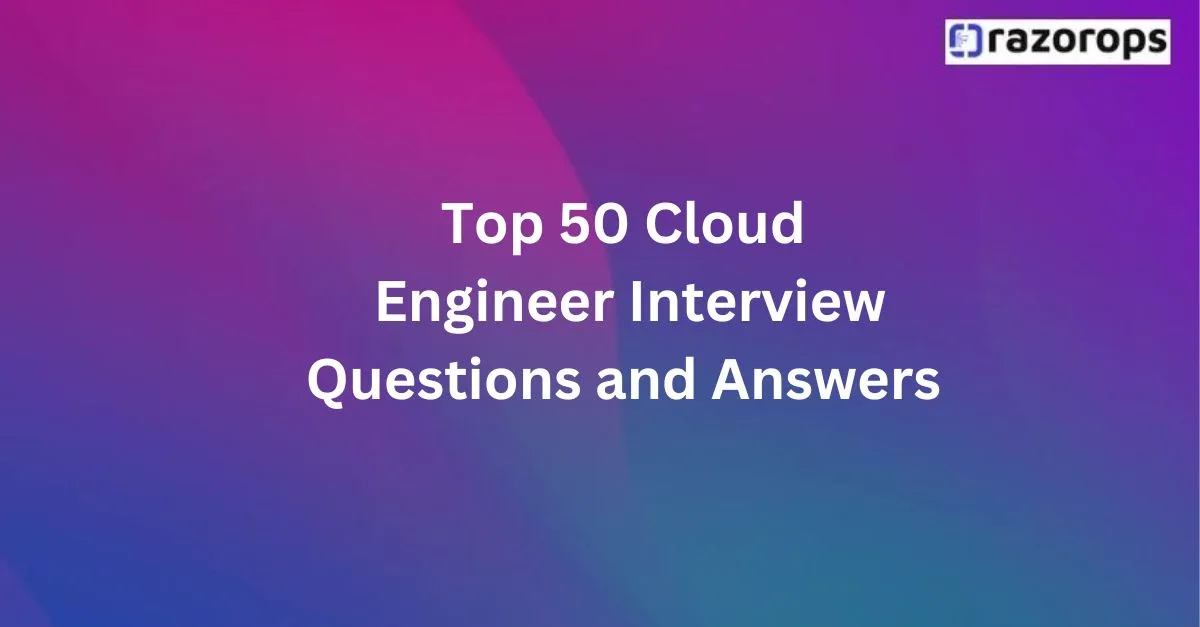Top 50 GCP DevOps Interview Questions and Answers
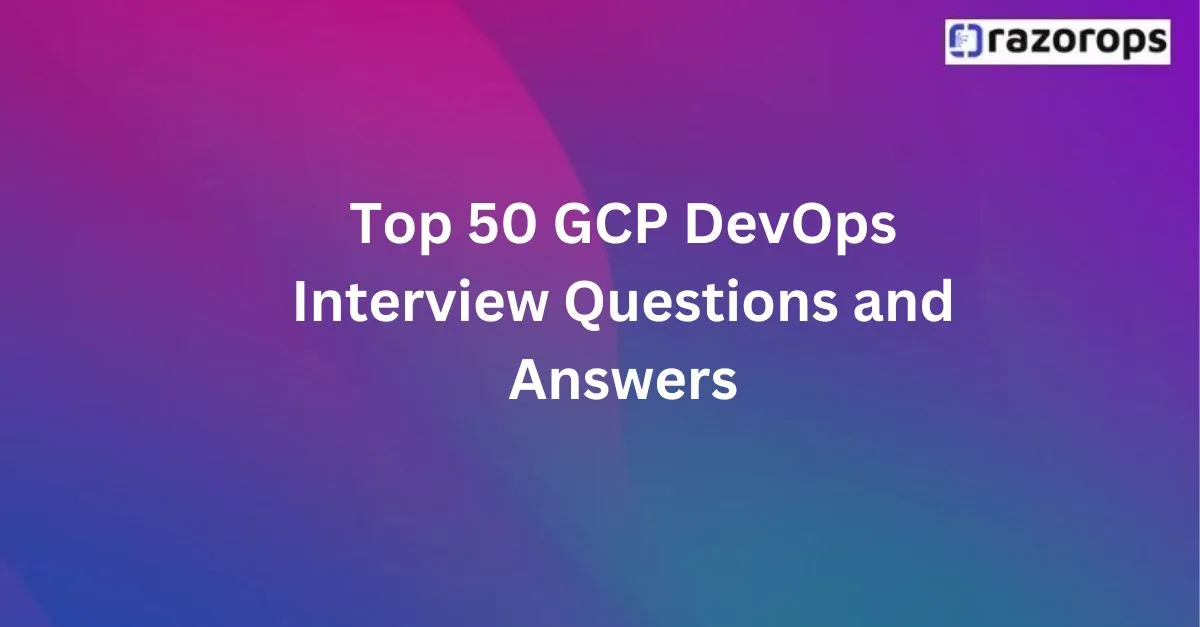
1. What is Google Cloud Platform (GCP)?
GCP is a suite of cloud computing services offered by Google, providing infrastructure, platform, and software services.
2. What are the key components of GCP?
Key components include Compute Engine, App Engine, Kubernetes Engine, Cloud Functions, Cloud Storage, BigQuery, and Cloud SQL.
3. What is Google Compute Engine?
Compute Engine is GCP’s Infrastructure-as-a-Service (IaaS) that allows users to create and run virtual machines on Google’s infrastructure.
4. What is Google Kubernetes Engine (GKE)?
GKE is a managed Kubernetes service for deploying, managing, and scaling containerized applications using Kubernetes.
5. What is Google App Engine?
App Engine is a Platform-as-a-Service (PaaS) for building and deploying scalable web applications and mobile backends.
6. What is Google Cloud Storage?
Cloud Storage is an object storage service for storing and accessing data on Google’s infrastructure.
7. What is BigQuery?
BigQuery is a fully-managed, serverless data warehouse that allows for fast SQL queries using the processing power of Google’s infrastructure.
8. What is Cloud SQL?
Cloud SQL is a fully-managed relational database service supporting MySQL, PostgreSQL, and SQL Server.
9. How do you deploy a Kubernetes cluster on GCP?
You can deploy a Kubernetes cluster using GKE via the GCP Console, Cloud SDK (gcloud command), or Terraform.
10. What is Google Cloud Functions?
Cloud Functions is a serverless execution environment for building and connecting cloud services.
11. What is the purpose of Cloud IAM?
Cloud Identity and Access Management (IAM) helps manage access control by defining who can do what with resources on GCP.
12. What is Stackdriver?
Stackdriver is a monitoring, logging, and diagnostics service for applications on GCP and AWS.
13. What is the role of DevOps in GCP?
DevOps in GCP involves practices and tools to automate and improve the integration and deployment of applications, infrastructure management, and monitoring.
14. Explain the concept of Infrastructure as Code (IaC).
IaC is the process of managing and provisioning computing infrastructure using machine-readable scripts or definition files.
15. What are some IaC tools supported by GCP?
GCP supports Terraform, Deployment Manager, and Ansible for IaC.
16. What is Google Cloud Deployment Manager?
Deployment Manager is an infrastructure deployment service that automates the creation and management of GCP resources.
17. What is Terraform?
Terraform is an open-source IaC tool that enables you to safely and predictably create, change, and improve infrastructure.
18. How do you manage secrets in GCP?
Secrets can be managed using Secret Manager, which securely stores API keys, passwords, certificates, and other sensitive data.
19. What is a VPC in GCP?
A Virtual Private Cloud (VPC) is a virtual network that provides connectivity to your GCP resources.
20. Explain the concept of regions and zones in GCP.
Regions are geographical locations where GCP resources are located. Zones are deployment areas within regions.
21. What is Cloud Build?
Cloud Build is a service that executes your builds on GCP infrastructure, enabling continuous integration and delivery (CI/CD).
22. What is a service account in GCP?
A service account is a special account used by applications and services to interact with GCP APIs.
23. How do you monitor applications in GCP?
Applications can be monitored using Stackdriver Monitoring, Logging, and Error Reporting.
24. What is Cloud Pub/Sub?
Cloud Pub/Sub is a messaging service for building event-driven systems and streaming analytics.
25. What is a Google Cloud Endpoint?
Endpoints is a service that helps you develop, deploy, and manage APIs on any Google Cloud backend.
26. What is the difference between App Engine Standard and Flexible Environment?
Standard Environment runs applications in a sandbox with limitations, while Flexible Environment runs applications in Docker containers with more control over the runtime.
27. What is Anthos?
Anthos is a hybrid and multi-cloud application management platform that provides a consistent development and operations experience.
28. How do you create a CI/CD pipeline in GCP?
You can create a CI/CD pipeline using Cloud Build, Cloud Source Repositories, and deploying to App Engine, GKE, or Cloud Run.
29. What is Google Cloud Run?
Cloud Run is a fully managed compute platform for running containerized applications.
30. What is the purpose of Cloud Spanner?
Cloud Spanner is a fully managed, scalable, relational database service with global consistency and high availability.
31. What are Managed Instance Groups (MIGs)?
MIGs are groups of virtual machines that are managed as a single entity to ensure high availability and scalability.
32. What is Cloud Dataproc?
Cloud Dataproc is a managed Spark and Hadoop service that simplifies big data processing using open-source tools.
33. What is Cloud Dataflow?
Dataflow is a fully managed stream and batch processing service for data analytics.
34. Explain the concept of autoscaling in GCP.
Autoscaling automatically adjusts the number of VM instances based on the current load to ensure optimal performance and cost-efficiency.
35. What is the role of SRE in GCP?
Site Reliability Engineering (SRE) practices in GCP focus on improving the reliability and scalability of applications and infrastructure.
36. How do you set up network peering in GCP?
Network peering allows you to connect VPC networks to facilitate private communication without using public IPs.
37. What is Google Cloud Interconnect?
Cloud Interconnect provides a high-speed, low-latency connection between your on-premises network and GCP.
38. What is Cloud DLP?
Cloud Data Loss Prevention (DLP) helps discover, classify, and protect sensitive data.
39. What is the purpose of Cloud Composer?
Cloud Composer is a managed workflow orchestration service built on Apache Airflow.
40. How do you implement disaster recovery in GCP?
Disaster recovery can be implemented using multi-region deployments, backups, and data replication strategies.
41. What is a Cloud NAT?
Cloud NAT (Network Address Translation) allows instances without external IP addresses to access the internet in a controlled and secure manner.
42. What is the role of Cloud Armor?
Cloud Armor provides DDoS protection and web application firewall (WAF) capabilities for GCP services.
43. What is Forseti Security?
Forseti Security is an open-source security toolkit for GCP that helps enforce security policies and ensure compliance.
44. How do you manage APIs in GCP?
APIs can be managed using API Gateway or Cloud Endpoints to control access, monitor usage, and secure APIs.
45. What is the role of Cloud Identity?
Cloud Identity provides identity management, authentication, and access control services for users and devices.
46. How do you migrate applications to GCP?
Applications can be migrated using tools like Migrate for Compute Engine, Velostrata, and Transfer Appliance.
47. What is Cloud Storage Transfer Service?
Cloud Storage Transfer Service automates the transfer of data from external sources to Cloud Storage.
48. What is the purpose of Google Cloud Marketplace?
Cloud Marketplace offers pre-configured solutions and services that can be easily deployed on GCP.
49. How do you secure GCP resources?
GCP resources can be secured using IAM, VPC Service Controls, Cloud KMS, and implementing best practices for security and compliance.
50. What is BeyondCorp?
BeyondCorp is Google’s zero-trust security framework that shifts access controls from the perimeter to individual users and devices.



